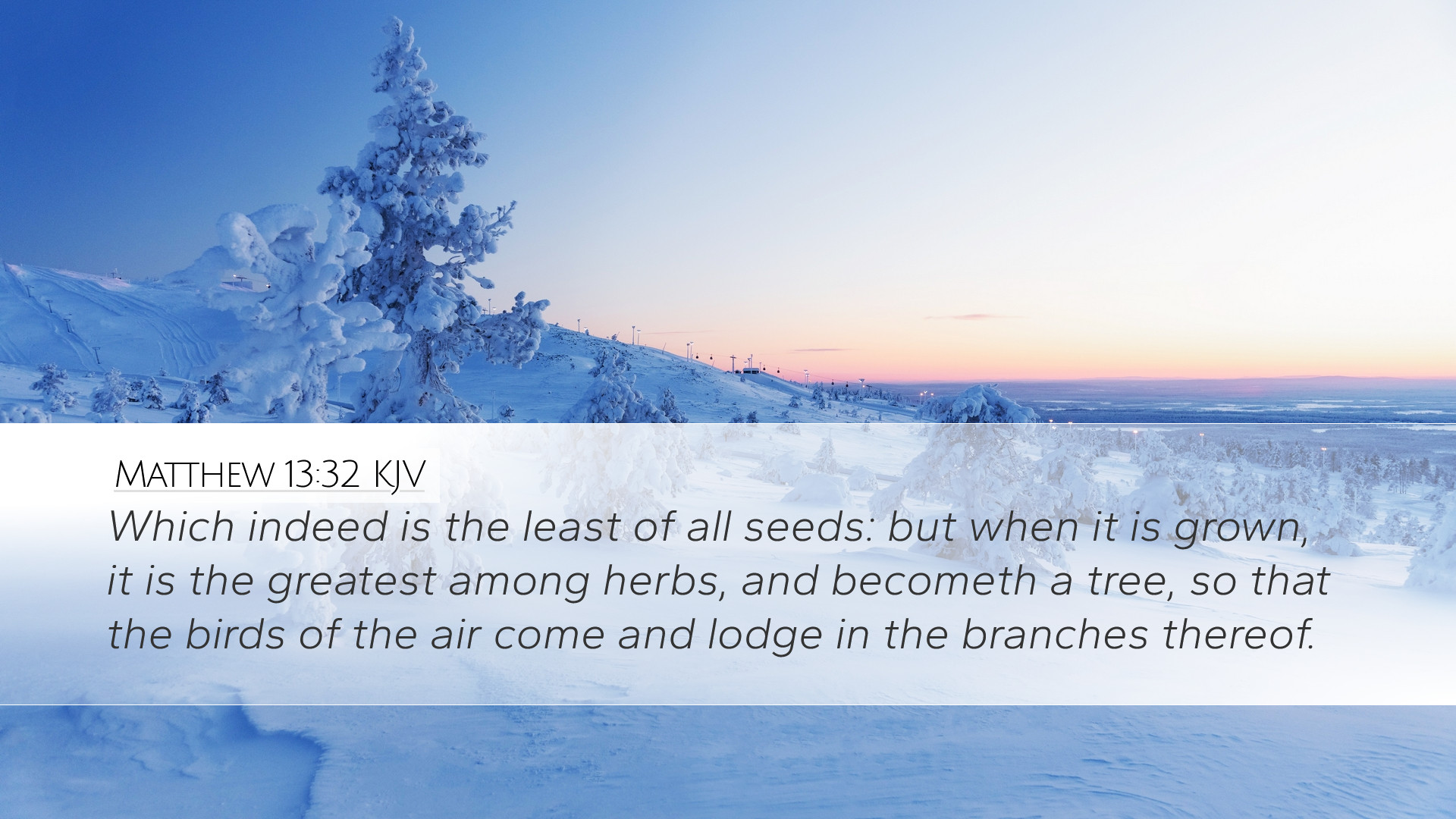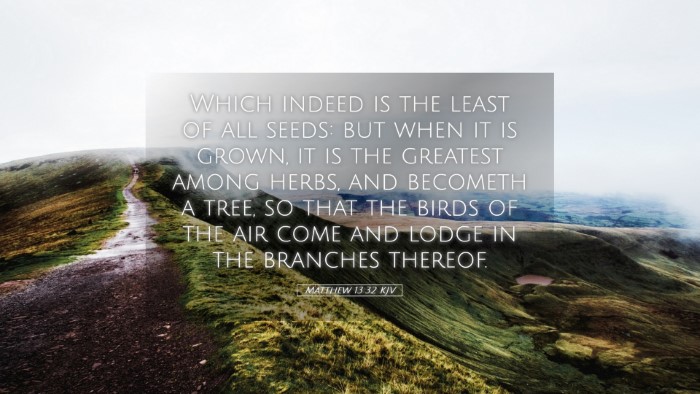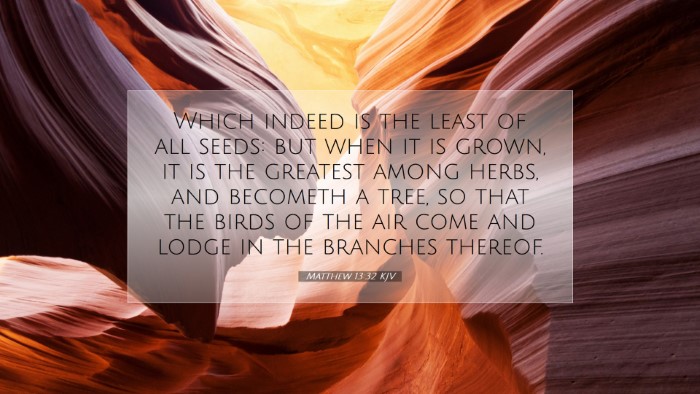Commentary on Matthew 13:32
Verse: "Which indeed is the least of all seeds: but when it is grown, it is the greatest among herbs, and becometh a tree, so that the birds of the air come and lodge in the branches thereof." (Matthew 13:32)
Introduction
This verse is part of a larger discourse where Jesus teaches through parables. Here, He compares the Kingdom of Heaven to a mustard seed, emphasizing its small beginnings and significant growth. The imagery serves to illustrate the nature of God's Kingdom and its expansive yet humble origin. The mustard seed is a fitting metaphor due to its size and the eventual magnitude it can achieve.
Exegesis and Theological Insights
The Smallness of the Seed
Matthew Henry notes that this seed is the "least of all seeds," symbolizing the humble beginnings of God's Kingdom. Just as the mustard seed is small and seemingly insignificant, so too was Jesus’ ministry at its inception. It invites reflection on how God often works through the small and the unnoticed. The choice of a small seed also reminds us that God often accomplishes great things through what appears insignificant to human eyes.
The Growth of the Kingdom
According to Albert Barnes, the emphasis on growth signifies that the Kingdom of Heaven will expand beyond its humble origins. The mustard seed, when grown, reaches surprising heights, illustrating how God's Kingdom takes root in the world. Barnes points out the transformation from a small seed to a substantial tree, highlighting the miraculous nature of God's work. This growth should encourage believers, reminding them of the potential for their faith to influence and expand beyond personal confines.
A Place for All
Adam Clarke elaborates on the imagery of birds lodging in the branches, interpreting this as a symbol of refuge provided by the Kingdom. He argues that just as the mustard tree offers shelter to birds, the Kingdom of Heaven provides refuge and sustenance to all who seek it. This is significant for community life within the church, where believers can find support and comfort.
Practical Application
- Faithfulness in Small Beginnings: The passage encourages individuals to be faithful in their small beginnings. Just as the mustard seed grows beyond expectations, so too can acts of faith grow into something greater.
- Hope for Growth: This verse instills hope that no matter how insignificant one's contributions may seem, they can have an immense impact in God's plan.
- Embracing Diversity: The inclusion of birds suggests that the Kingdom is open to all. It teaches us the importance of welcoming diversity within the church body.
Historical Context
In a first-century Jewish context, the mustard plant was a common sight, and its growth pattern was well understood by Jesus' audience. The Kingdom of Heaven's analogy would resonate with the agrarian society that relied heavily on sowing and reaping. By using relatable imagery, Jesus effectively communicates profound spiritual truths.
Conclusion
Matthew 13:32 serves as a powerful reminder of the nature of the Kingdom of Heaven. Its small beginnings, significant growth, and potential for inclusivity offer profound implications for believers today. Pastors, theologians, and students alike can glean insights from this verse that encourage faithfulness, promote hope, and foster an understanding of God's expansive love.
Reflections for Further Study
- How do you see the Kingdom of Heaven at work in your community?
- Reflect on your small acts of faith—what might they grow into through God's power?
- Consider how your church can be a refuge for diverse individuals and groups.


